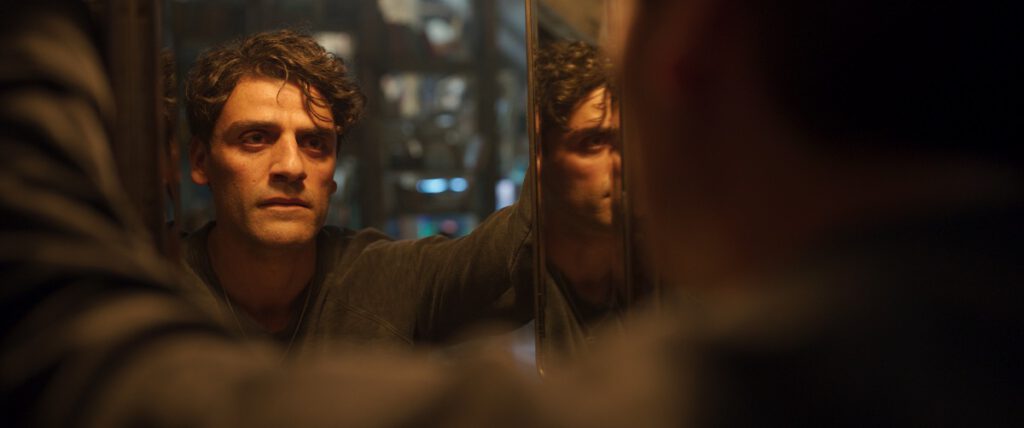The truth is that the Marvel Cinematic Universe has been surprisingly bereft of truly great acting turns. It’s a world that embraces spectacle over character, and usually tends to melodrama when it’s trying to pull at the viewer’s heartstrings. There’s no space for real acting. However, there’s reason to hope that the Disney+ series could help shift this reputation. One of the reasons that “WandaVision” was so compelling was it allowed Elizabeth Olsen, Paul Bettany, and Kathryn Hahn room to flex their acting muscles instead of just their imagination with a green screen. Tom Hiddleston was a joy in “Loki”; ditto Hailee Steinfeld in “Hawkeye.” Which brings us to “Moon Knight,” a choppy show through its first four episodes that’s still a must-see simply for what Oscar Isaac does in a fascinating dual performance. Add his consistent work to sharp direction from Mohamed Diab and Justin Benson & Aaron Moorhead, and “Moon Knight” ends up one of the stronger MCU Disney+ shows to date, even if it suffers from the seemingly inevitable mid-season sag narratively.
Oscar Isaac plays Steven Grant, an exceedingly ordinary employee in a museum gift shop who has been suffering severe black outs, so bad that he chains himself to bed at night and puts tape on the door so he knows if he left. In many ways, he is a classic alter ego, the Clark Kent of the show. But imagine if Clark didn’t know he was also Superman. Steven keeps waking up somewhere else, unsure if he’s still dreaming as he regains control of his own body. Eventually, he discovers that he is also Marc Spector, the alpha part of his personality who knows the full deal about his powers as Moon Knight, the avatar for Khonshu (perfectly voiced by F. Murray Abraham), the ancient Egyptian God. It turns out that the Gods can still control people on Earth through avatars and, well, Khonshu is a little aggro when it comes to how he uses Marc, especially with the emerging threat of a man named Arthur Harrow (Ethan Hawke), a religious cult leader who is trying to resurrect the god Ammit. Steven? He’s pretty much just along for the terrifying ride, discovering along the way that not only is the world not what he thought it was, but neither is he.
Isaac and Hawke are two incredible performers who balance each other narratively in fascinating ways. Steven/Marc are extroverts—the awkward and the aggressive—whereas Harrow is the calm sociopath, the introvert who will look you in the eye and calmly tell you why he’s killing you. Caught in the middle is Layla (May Calamawy), someone important from Marc’s past whom Steven has never met—it’s complicated. As the first four episodes get to puzzle-solving ancient riddles in Egyptian tombs, it all takes on a very Indiana Jones aesthetic, and Layla is the Marion to Marc/Steven’s Indy.

The best elements of “Moon Knight” outside of Isaac’s daring performance are when the writing allows Diab and Benson/Moorhead to get weird. This is an undeniably strange show that at times leans into its concept as a horror film—a superhero version of Dr. Jekyll and Mr. Hyde—and the directors get to have some fun in action scenes involving shifting personalities and invisible foes. I wanted more of that and hope/expect action to dominate the final two episodes not yet sent to press.
Sadly, like most streaming shows, “Moon Knight” has a habit of slowing down for long dialogue scenes. Fans will think that this first truly original Disney+ Marvel series (the other four live-action ones built off character introduced in the films) is a little weird, but I would argue it should be even weirder. Stop trying to explain everything and just let the talent in front of and behind the camera spin through this hallucinatory Egyptian funhouse. “Moon Knight” is at its best when it’s playing more with moods like fear and confusion than when it sits down for long scenes that over-explain the Gods, the roles they play, and what they want.
However, the screenwriting issues with “Moon Knight” never fully derail it because the talents of people like Isaac, Hawke, and Benson/Moorhead keep pulling it back on track. There’s a playfulness here that’s lacking from a lot of the MCU, and yet what really anchors the show is Isaac’s understanding of how crazy it must be to be a superhero, someone who shifts into another personality when called on to save the day. More than any other Disney+ Marvel show, I’m excited to see how this series ends and where the character goes from here—there have already been rumors of a feature film. For one of the few times, it doesn’t just feel like a Disney+ show is repeating something that fans have already liked in a movie; they’re willing to show them something new instead. Let’s hope it starts a trend.
Four episodes screened for review.












